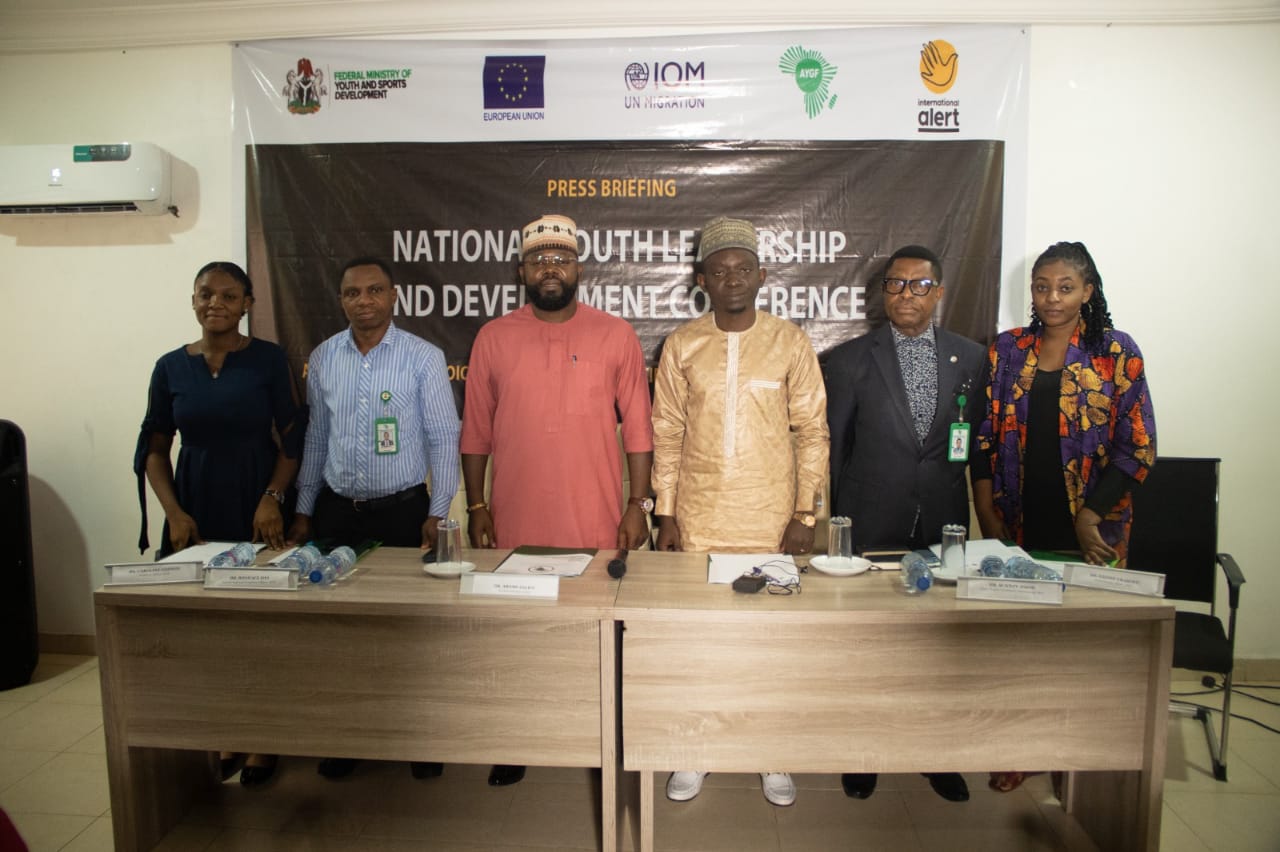
The African Youth Growth Foundation (AYGF) has called on Nigerian youths to demand for accountability of funds accrued to the Federal, State and local government from the removal of fuel subsidy.
The Executive Director of AYGF, Arumeh Saleh, stated at a press briefing in Abuja to commemorate the 2023 International Youth Day that the implication of fuel subsidy removal was to ensure that government at all levels have more money to spend on infrastructure development and the empowerment of the citizenry.
According to him, from the current statutory allocations to the government, the three tiers of government have more money in their hands. He therefore called on the youths to begin to demand for accountability of what the excess money in the hands of federal, state and local governments are being used for
Saleh stressed the need for the new government at all levels to spearhead a comprehensive drive to drastically reduce the pressing challenges of youth unemployment, mass migration, youth poverty and the exclusion of young voices from policy-making processes.
He underscored that the active involvement of the youths in policy formulation would enable the government to tap into a wellspring of innovative ideas and fresh perspectives, thus shaping a narrative that resonates deeply with the aspirations of the society.
While pointing out Nigeria’s current population, which stands at approximately 211 million according to UNFPA’s 2022 report, and the projections of potential increase to 264 million by 2030 and an astounding 300 million by 2036, he noted that it was expedient that government adopt a carefully formulated and expansive strategy aimed at harnessing the immense potential inherent in the youth demographic.
The AYGF ED lamented that 60 percent of Nigerians lack representation in the critical decision-making process, saying the imbalance not only hinders their rightful
participation but also fosters government distrust and mounting frustration among the youths.
He further raised concern over the statistics on youth unemployment, which reached 42.5 percent in 2020, along with an underemployment rate of 22.8 percent according to the National Bureau of Statistics, Nigeria (2022), adding that further analysis revealed that over 53 percent of the 151 million youth was unemployed, which is about 80 million youths
The alarming situation, according to him not only perpetuates persistent poverty but also fuels the phenomenon of mass migration, also known as the Japa Syndrome, saying Nigerian youth are not passive observers; they actively seek participation in policy formulation and decision-making processes that drive both personal and communal progress.
“Unfortunately, these aspirations often encounter barriers that prevent their involvement, despite their undeniable relevance. This collaborative approach offers an unprecedented opportunity to establish a robust and forward-looking agenda. Through strategic investments in skills acquisition, job creation, and essential infrastructure development.
He called on the government to initiate a transformative ripple effect to effectively address youth unemployment, poverty and the prevailing trend of mass migration through inclusive policy-making, saying that the integrated strategy has the potential to not only empower the youth but also steer Nigeria towards a prosperous and harmonious future.
“With Nigeria’s substantial youth population constituting over 70 percent there arises a compelling call for democratic participation and inclusive engagement. Recognizing the importance to shape the new”, he stated
While mentioning that AYGF was commemorating the day with support from the European Union, International Organization for Migration (IOM), Saleh pointed out efforts to foster youth inclusion, sustainable peace and development in Nigeria.






